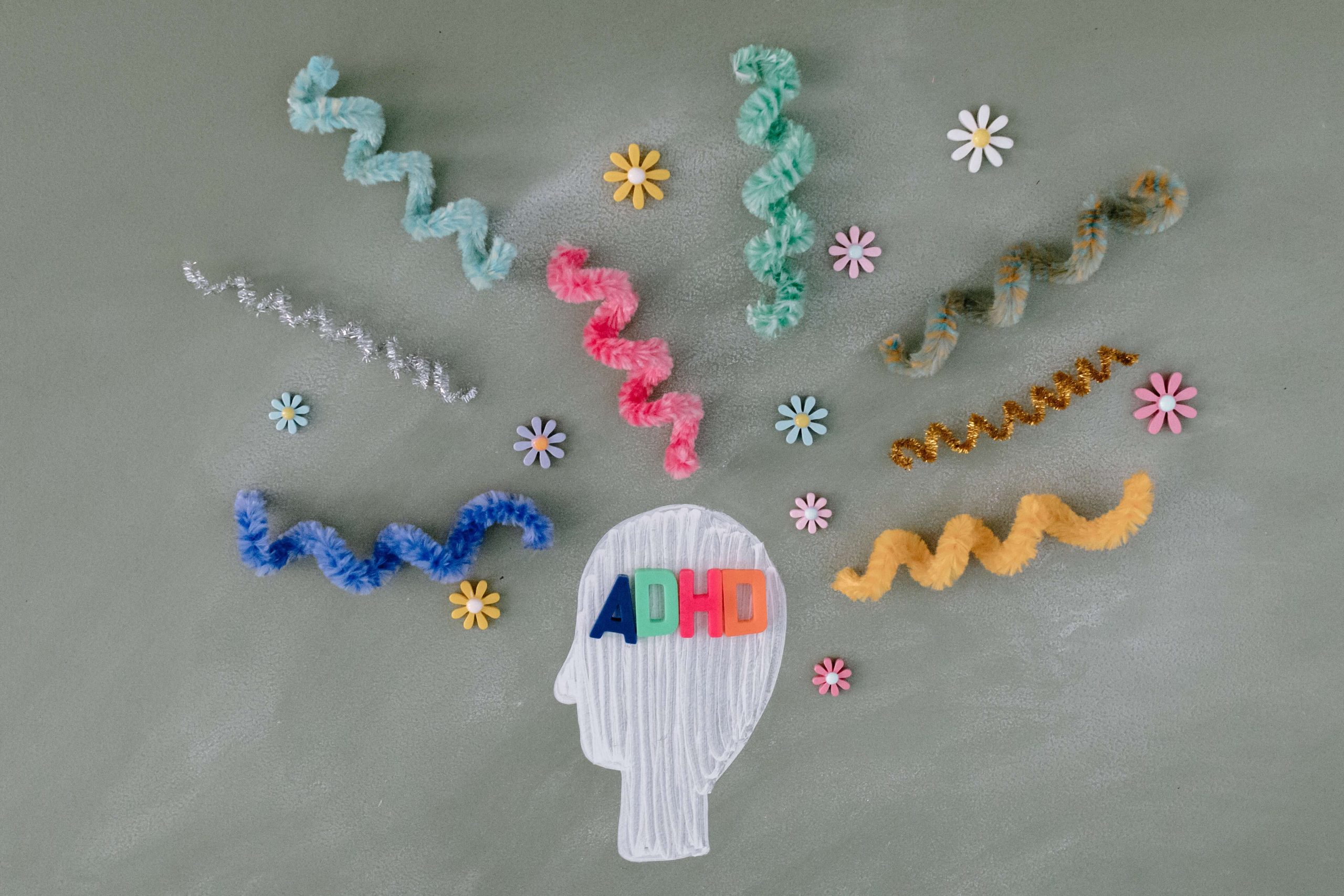When you are forgetful, or have trouble with focus, it might be working memory problems.
What do we mean when we say we have trouble remembering or are forgetful? Or when we struggle to focus? When we talk about memory problems we may be talking about our working memory, an important brain function that allows us to temporarily store and manipulate information in our minds. It plays a vital role in processes such as problem-solving, decision-making, attention, and learning.
As a Clinical Psychologist, I have observed that many of my clients often struggle with memory problems like forgetfulness and a lack of focus. Forgetfulness can be a symptom of working memory issues, although it can also refer to the problems with long term memory. My clients often complain that they just can’t remember or are forgetful – often in the sense of forgetting directions or appointments. These types of problems can feel like problems with brain fog or focus. They often feel stupid, or refer to “old age” problems.
In this post, I will take a delve into the intricacies of working memory, including its capacity and function, provide insights on how it can influence our daily lives, and explore memory problems like forgetfulness.
What is Working Memory?
Our working memory is part of our system of thinking. It is responsible for temporarily storing and manipulating information that is relevant to a specific task or goal. That means, if there is a deficit, you may feel forgetful or feel as if it is hard to remember what you are doing. You may feel as if you struggle to hold multiple pieces of information in your mind simultaneously, leading to forgetting some of your to-do list. For example, you might forget directions to a new location because you are unable to hold the information in your working memory long enough to reach the destination. Or, you may forget important dates or appointments because you were unable to retain the information in your working memory.
What about concentration? Working memory and concentration are not the same thing, although they are related. Concentration refers to our ability to sustain attention on a particular task or activity for an extended period. This is our focus. Concentration involves focusing on one thing while ignoring distractions, and it is a crucial skill for many activities, such as reading, studying, and driving.
Working memory, on the other hand, is a brain function that allows us to temporarily hold and manipulate information in our minds. Importantly, it lets us hold and use the information in our minds while we perform a task or activity. This simple, but essential skill is critical for activities that require problem-solving, decision-making, and learning. We often begin practicing working memory in childhood, with games such as Simon Says. This is a fun game that tests both working memory and attention, as it involves following a series of commands given by the leader, but only if the leader says “Simon says” before the command.

Interesting fact – Typically, we can hold about seven pieces of information in our working memory at once.
Our working memory has a limited capacity, meaning that we can only hold a certain amount of information at once. The typical capacity is seven pieces of information, give or take two. This phenomenon is known as Miller’s Law, named after the psychologist George Miller, who first proposed this theory in 1956.
This limited capacity is why we often naturally break phone numbers into “chunks” to remember them. For instance, instead of trying (and failing) to remember a ten-digit phone number as a single string of numbers, we memorise it by breaking it down into two chunks of three numbers and one chunk of four numbers. How often do you use chunking?
Chunking strategies are an effective way to enhance our working memory capacity and something we often do in our day to day lives without even noticing.
Chunking can be used for various types of information, such as dates, addresses, or lists. By breaking down information into smaller chunks, we simply reduce the load on our working memory and make it easier to remember and recall information.
Concentration and Working Memory
Although concentration and working memory are separate functions, they are closely related.
Maintaining concentration for a long period often requires the use of working memory: we need to be able to hold information in our minds to be able to complete tasks successfully. For instance, when you read a book, or a blog post like this, you need to be able to remember the information you have already read, in order for the words or story to make sense as you continue reading.
Working memory and long term memory are different. Working memory allows us to hold on to information while performing a task, and then release the information once the task is completed. It is different from long-term memory, which involves the storage of information for an extended period.
For example, when we read a sentence, we need to hold the information in our working memory to comprehend the meaning of the sentence. But when we memorise poetry to be able to recite it a week later, we need to use long term memory.
Do we have other types of Memory?
Yes! We have several other types of memory that play important roles in our daily lives. These different types of memory interact with one another, and they all play a critical role in our daily lives, from remembering important information to recalling past experiences and learning new skills. Our long term memory allows us to store information for extended periods, ranging from minutes to years. Long-term memory is made up of different types of memory – from memories that are consciously recalled, such as facts, events, and personal experiences, to implicit memory of how to perform a task or activity.
- Episodic memory: Episodic memory is a type of explicit long-term memory that involves the recollection of specific events or episodes in our lives, such as a particular birthday party or a family vacation.
- Semantic memory: Semantic memory is a type of explicit long-term memory that involves the recall of general knowledge, such as facts about the world, concepts, and vocabulary.
- Procedural memory: Procedural memory is a type of implicit long-term memory that involves the recall of how to perform a task or activity, such as riding a bike or tying your shoes.
- Emotional memory: Emotional memory is a type of memory that involves the storage and retrieval of emotional experiences, such as fear, happiness, or sadness.
It’s fascinating for a psychologist like me who loves all things brain and performance related.
What impacts our Working Memory?
Lots of things can impact working memory, so it’s important to be self-compassionate.
Day to day by factors, such as stress, fatigue, and sleep, and life challenges can cause transient working memory problems, and difficulty remembering. Becoming a parent is a perfect example of a period where forgetfulness and working memory challenges can escalate quickly!

Clients with depression may experience fatigue, difficulty concentrating, and memory problems, or difficulty regulating emotions, all of which can make it challenging to complete tasks that require sustained attention and mental effort. For instance, I often find that studying or problem-solving can be much more difficult when a client is struggling with depression.
Similarly, anxiety can also impact working memory. Clients with anxiety may find it difficult to stay focused on tasks and may be easily distracted. Racing thoughts, which are common in anxiety, can interfere with a client’s ability to remember and recall information, further impacting their working memory – and their self esteem.
So, for many of my clients, these types of challenges are often a problem, one that may either resolve, or persist. Ongoing working memory challenges, frustration with forgetfulness or poor decision making are all common reasons for seeking help.
Working memory problems are common, sometimes normal – and they can be a symptom in a lot of different mental health conditions, including depression, anxiety, and ADHD. Working memory deficits are also commonly experienced by individuals with neurological disorders, such as dementia, and traumatic brain injury.
Impact of Working Memory Problems
Working memory problems can significantly impact daily life. Children with working memory deficits may struggle in school, particularly in subjects that require problem-solving or complex reasoning.
Adults may find it challenging to complete tasks that require multitasking, such as planning a project while simultaneously attending to emails and phone calls.
Feeling forgetful can impact confidence and social relationships when it’s difficult to follow a conversation, or remember details or names of others.
Plus, it can make it hard to weigh up options, or make important decisions. Sometimes it can make it hard to make even small decisions, like deciding what to cook for dinner. These are real problems, often hiding under the namse of forgetfulness or loss of focus. And often hidden in shame.
Improving Working Memory Problems
Fortunately, there are various ways to improve working memory, reduce your forgetfulness, and enhance your focus – and many great strategies to help. Did you know that engaging in regular exercise, meditation, and cognitive training games can enhance working memory performance? Try getting out for a walk, and getting to bed 10 minutes earlier, and monitor the impact on your working memory – you may be surprised at the effect a small change can make.
Additionally, practicing mindfulness and reducing your stress can also positively impact working memory and improve focus.
Ready for Change?
Working memory and all the ways that forgetfulness, attention and distraction can present is a huge topic. I hope you have enjoyed learning a little about it in this blog post. By working with a psychologist, you can take steps to enhance your performance, discover your strengths and weaknesses, and optimise your cognitive abilities. It’s something our team help most clients with.
It is important to note that forgetfulness can also be a symptom of other cognitive or health-related issues, such as aging, stress, or certain medical conditions. If you are experiencing forgetfulness or other cognitive difficulties, it is essential to seek professional help from a healthcare provider or mental health professional who will help identify the underlying cause of your symptoms and provide appropriate treatment and support.
Ready for change? Take the first steps now.







